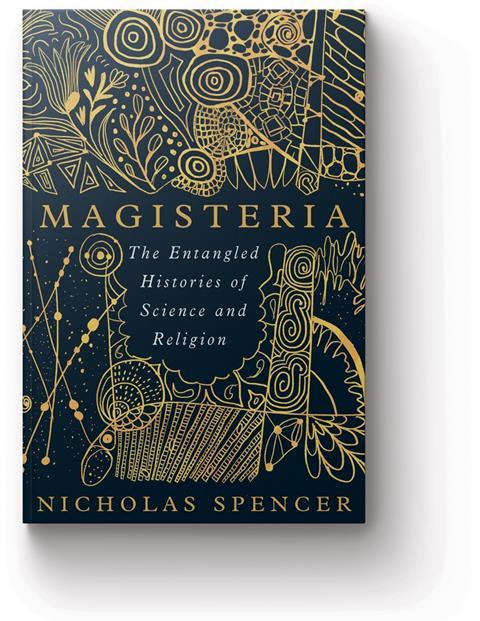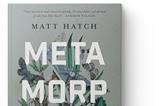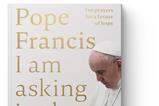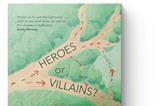
Many, but perhaps not all of us, will be familiar with the 1957 big-screen portrayal of Reginald Rose’s legendary drama Twelve Angry Men.
For the uninitiated, and with a spoiler alert duly declared, the post-trial drama unfolds in an American courtroom, where the jurors are finalising the verdict on what seems to be an open-and-shut case, and the fate of the accused - execution - has been hastily, and irrevocably, determined beyond all reasonable doubt.
Initially, only one juror (Henry Fonda) has the temerity to challenge the strongly held opinions of his eleven colleagues. After having briefly explained some of his reasoning for taking a different position to the majority vote, a secret ballot - where people don’t have to publicly declare their misgivings in front of their peers - is requested. Perhaps unsurprisingly, the security of not having to go public, and openly backtrack on a previous opinion produces a slightly different outcome, causing the numbers to move in a different direction.
Slowly but surely, as presuppositions are challenged, prejudices uncovered, and alternative explanations and perspectives explored, after much soul-searching - often undertaken at considerable personal cost - the majority of those present begin to change their minds. One-by-one, each juror confronts their bigotry and addresses their ignorance, laziness, and sloppiness of thought. Needless to say, they quickly arrive at a different outcome: that the accused isn’t quite as guilty as they’d thought.
While some would argue that the stakes aren’t quite so high when it comes to examining the issue at the heart of Nicholas Spencer’s latest book, Magisteria: The Entangled Histories of Science and Religion, it seems to me that the author is nevertheless encouraging us to do something similar to Rose’s twelve angry men: to set aside our prejudices and presuppositions, to re-examine the bigger picture, and to thereby rethink our position with regard to the nature of the relationship between science and religion.
Spencer begins by suggesting that the verdict most commonly handed down is that, "Science and Religion have always been (and still are) at each other’s throats.” Having set out his stall perhaps a little mischievously, by creating a straw-man that is simply begging to be knocked down, the author goes on to do a Henry Fonda. Slowly but surely, over the course of some 400 pages, he defiantly challenges the ill-informed myths, half-truths and multiple prejudices that many of us have lazily, or thoughtlessly, adopted.
Writing in a style that is as scholarly as it is accessible - and it is most definitely both - Spencer systematically dismantles the widely held view that the fallout between science and religion that was conceived by Galileo Galilei et al. in what was to become the Enlightenment, and that was ultimately dealt a knock-out blow by Darwin, has always been one of straightforward conflict and has never been a "tale of uncomplicated concord": Right?
Spencer takes us on a breathtakingly inclusive intercontinental journey, from the dawn of time in Mediterranean antiquity, to present-day Silicon Valley
Wrong! Spencer protests. He takes us back to a time BC – long before Christ and the Common Era - to continents and cultures that ordinarily get ignored when the relationship between the terrible twins comes up for debate.
With the telescope resolutely turned the other way - offering a much broader perspective than the narrowly held view traditionally on offer - Spencer takes his reader on a breathtakingly inclusive intercontinental journey, from the dawn of time in Mediterranean antiquity, to present-day Silicon Valley.
During his grand tour, he thoroughly examines the rich and varied landscape that makes up the messy relationship between scientia et religio: how it developed in the ancient world, how it fared in the "ambiguous and argumentative world of Judaism", eighth-century Baghdad, Islamic culture more generally, and the oft-neglected melting pots of Africa, China and Arabia to name but a few. While the contribution of Christendom is carefully recorded (warts and all) alongside the panoply others, it is done so in a way that puts it in context, rather than centre-stage.
As Spencer summarises with characteristic wit, scholarship and attitude: "The histories of science and religion are many and messy, and it would be misleading to cram Hypatia of Alexandria, Muhammad ibn Musa al-Khwarizmi, Maimonides, Adelard of Bath, Robert Grosseteste, Nicolaus Copernicus, Galileo, Bacon, Margaret Cavendish, Boyle, Newton, La Mettrie, David Hartley, William Buckland, Darwin, Rifa’a al-Tahtawi, Dixon and White, Faraday and Maxwell, Jennings and Bryan, Einstein and Dirac, Freud, Frazer and Evans-Pritchard, Yuri Gargarin and John Glen, George Price and Richard Dawkins, and Alan Turing and Ray Kurzwell into the same neat coherent narrative."
With all the skill and passion of a lifelong city-dweller who’s desperate to share the rich and complex stories of the place where he grew up with a passing tourist, Spencer takes unmitigated delight in presenting the truth, the whole truth, and nothing but his truth, alongside the messy back-stories of one of the most enduring relatonships of all time.
The fact that he does this with a repeated insistence that his readers must always ask, "Who’s telling the story?", and a reminder that the dialogue between religion and science "is always about people" (and must never become an impersonal, academic debate), makes this an impressive and deeply humane text that is more than worthy of all due care and attention.






































No comments yet